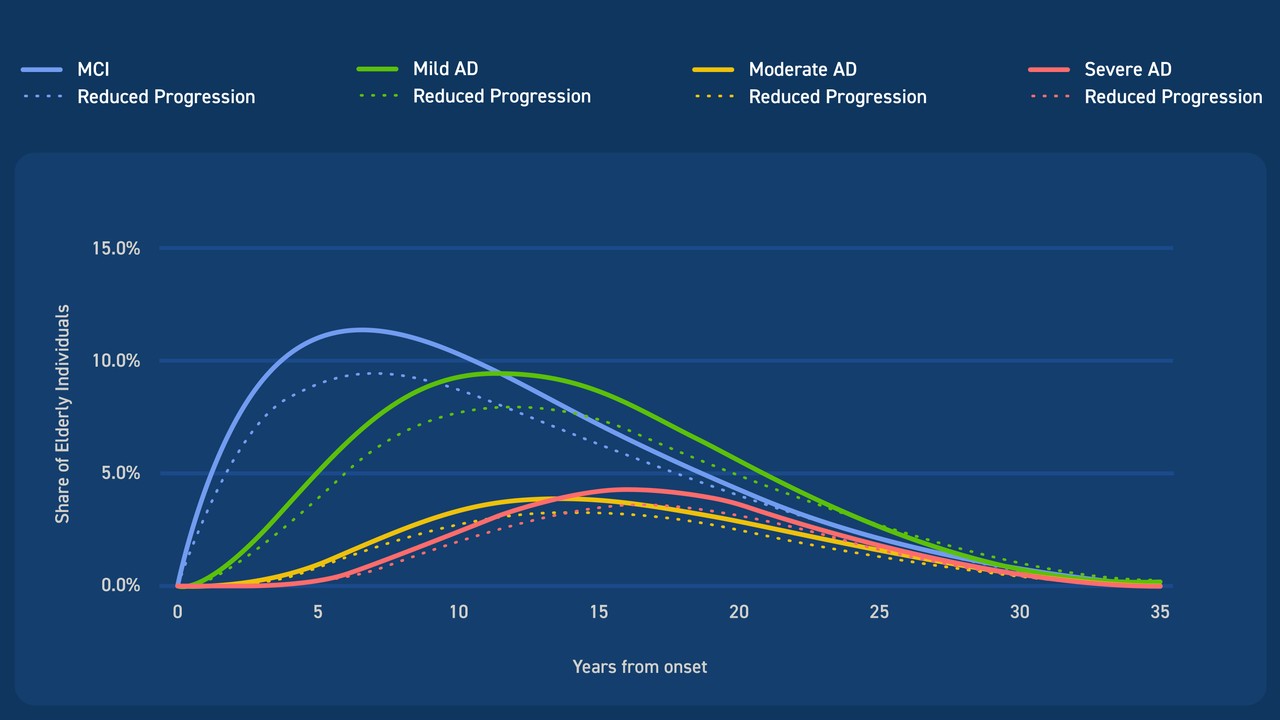Case Study
Improving the
Modeling of Alzheimer's
disease progression
The Question
Alzheimer’s disease is a progressive neurological disorder characterized by progression from short-term memory loss to complete loss of function and death.
It is a continuum, with patients progressing from mild cognitive impairment (a pre-dementia stage that does not affect independence) through stages of increasing disease severity. As the economic burden of Alzheimer’s disease continues to grow, valid economic models are critical to inform decisions about the value of new treatments. Our client asked for our help: could we fill a gap in the scientific literature by creating a robust model of disease progression which included clinical biomarkers and covered all stages of disease?
The Approach
We used prospective data gathered by the National Alzheimer’s Coordinating Center on all patients enrolled in Alzheimer’s Disease Centers across the US.
With this rich dataset, we estimated the probabilities of disease progression from normal cognition through all stages of dementia. Conditional on patient health and age, we also calculated the probability of institutionalization and death at each disease stage. Separately, we also calculated these probabilities for patients with clinical biomarkers of Alzheimer’s disease (amyloid pathology). These models allowed us to simulate the potential impact of a therapy that delayed the transition to mild cognitive impairment.
The Results
We found that Alzheimer’s disease patients with amyloid pathology progressed more rapidly through the earlier stages of the disease.
Our simulations suggested that delaying the onset of mild cognitive impairment increased life expectancy and time with normal cognition, while reducing institutionalization and time in severe dementia states.

We helped our client share this model with the broader scientific community and contributed to an ongoing international collaborative focused on developing a gold-standard model of Alzheimer’s disease progression. We also helped create an ISPOR webinar to help provide education on valuing therapies for Alzheimer’s disease.
The Long And
Short Of it
Alzheimer’s disease is a continuum, and therapeutic efforts have targeted slowing progression to more severe stages.
Our client needed a robust model of Alzheimer’s disease progression to improve the valuation of new therapies. We modeled progression through the full spectrum of Alzheimer’s disease and calculated transition probabilities for people with and without clinical biomarkers. We also helped our client introduce these models into ongoing conversations with the scientific community.
Related publications
Estimating Alzheimer's Disease Progression Rates from Normal Cognition Through Mild Cognitive Impairment and Stages of Dementia
Estimating Progression Rates Across the Spectrum of Alzheimer's Disease for Amyloid-Positive Individuals Using National Alzheimer's Coordinating Center Data
Collaboration with International Pharmaco-Economic Collaboration — Alzheimer's Disease